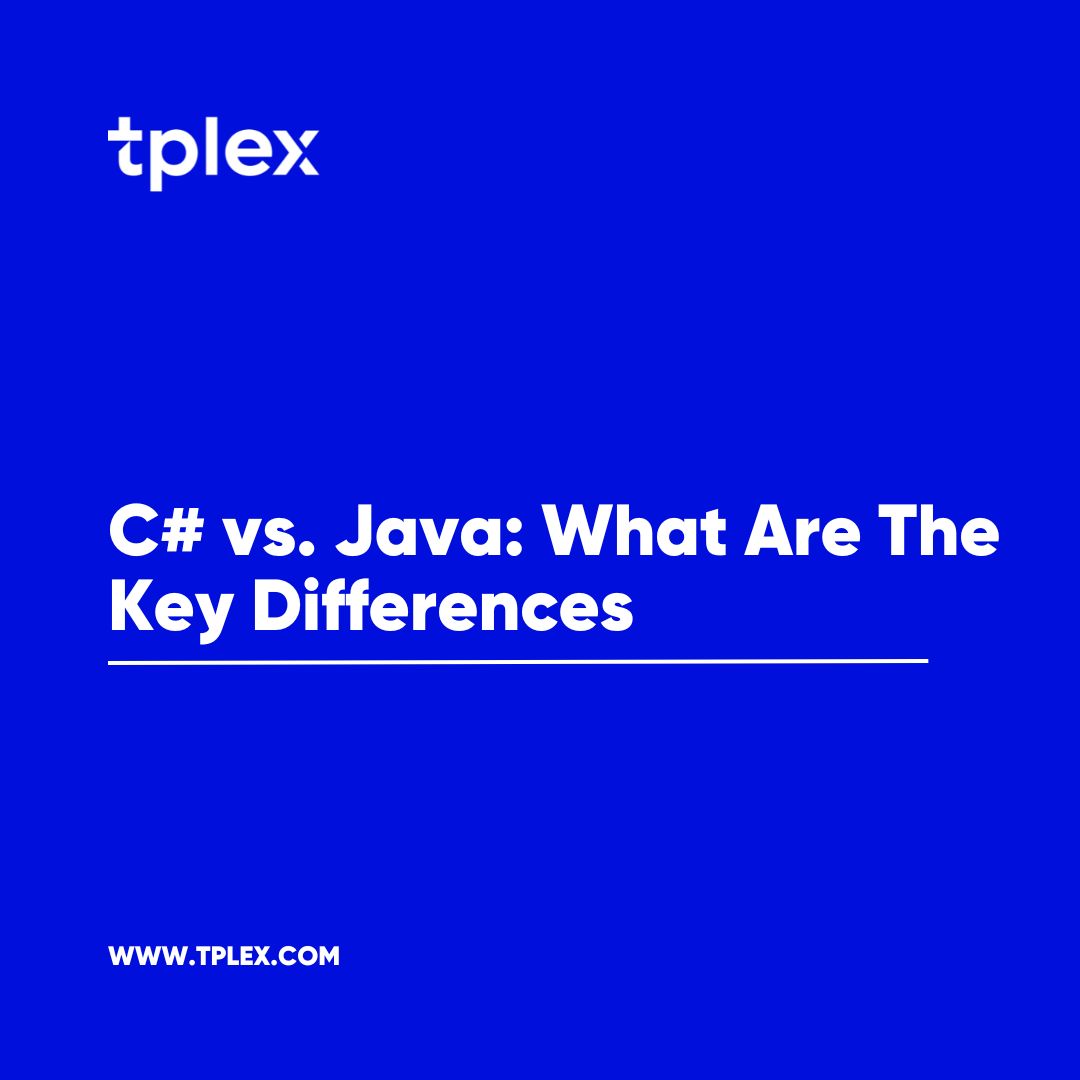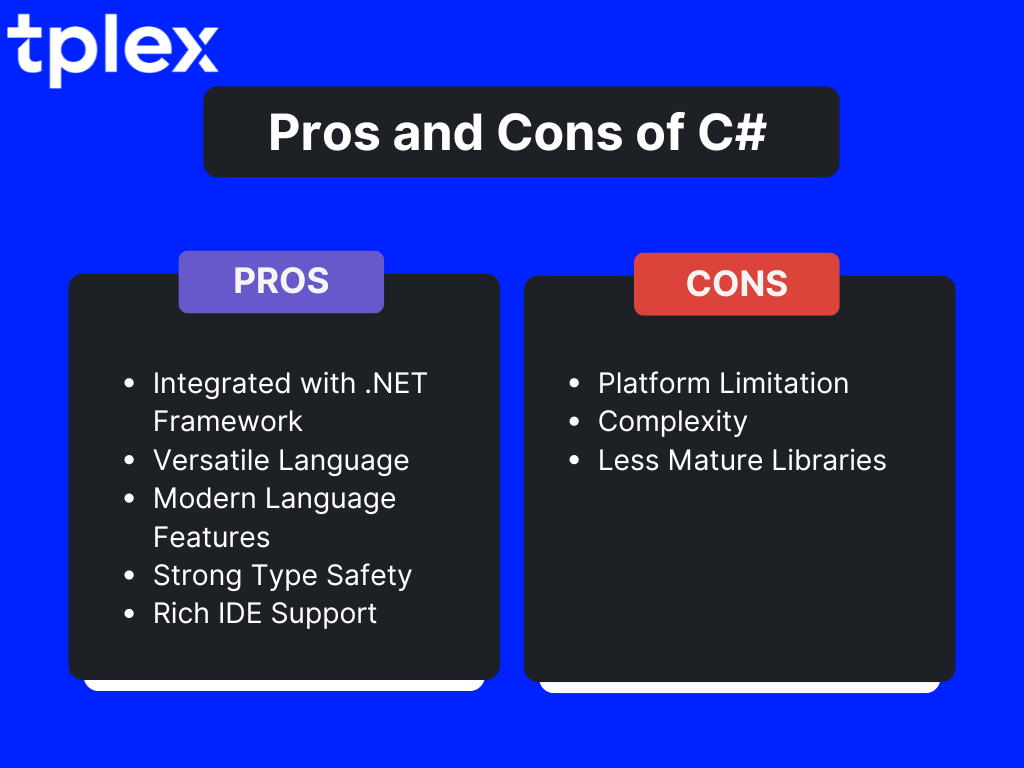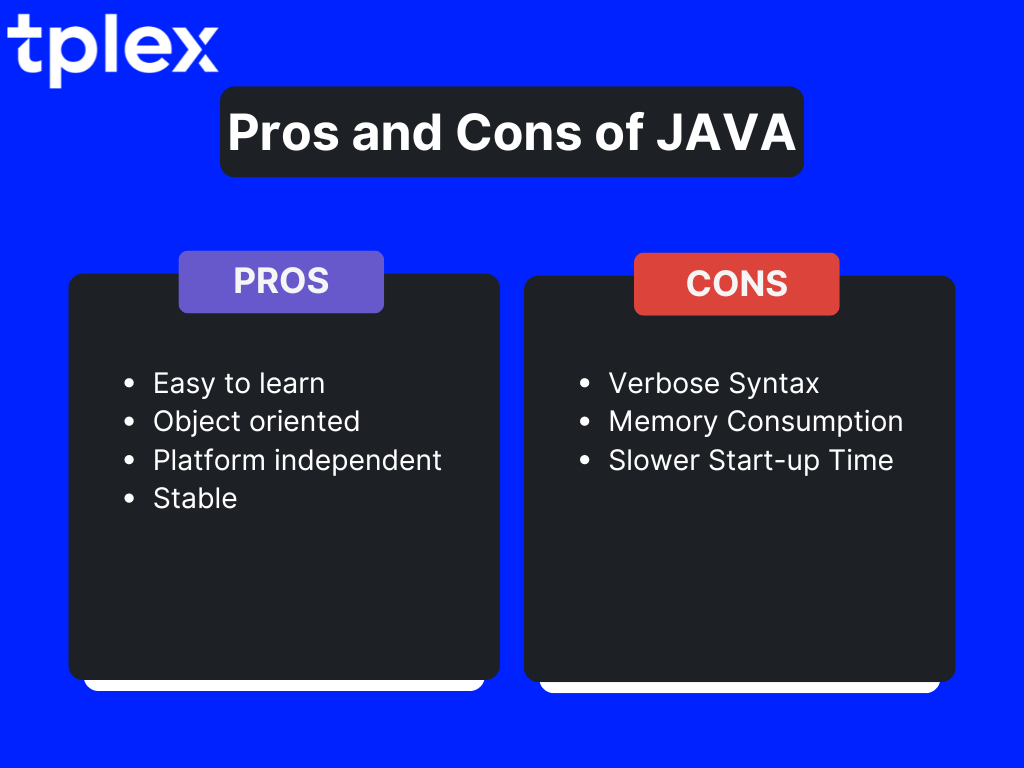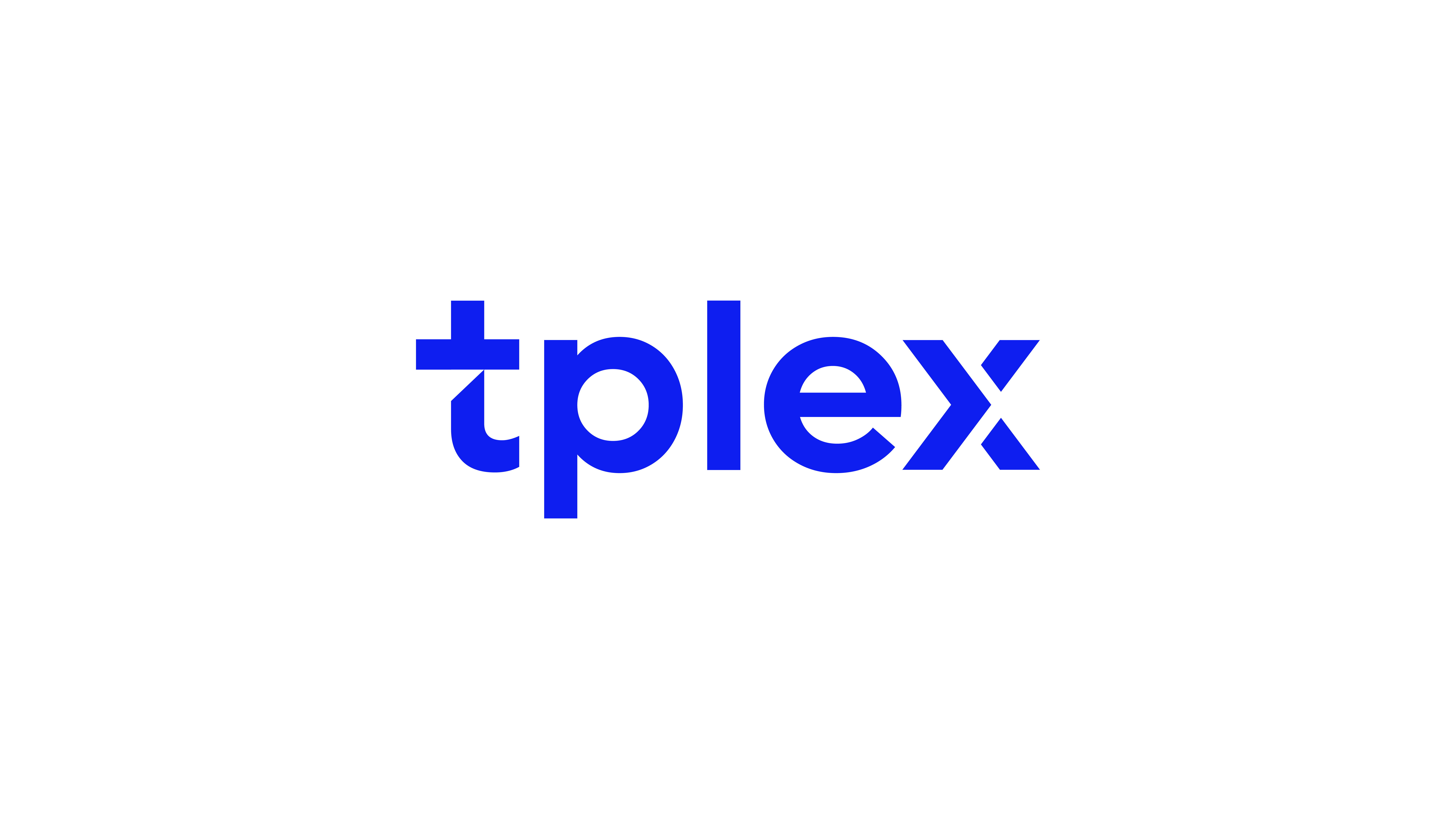C# vs. Java: What Are The Key Differences

When we talk about programming languages, we can see that C# and Java are the two main ones, each with their features. Let’s explore further to see what each one is all about.
Overview of C#?
Anders Hejlsberg led the development of C#, a high-level, type-safe, object-oriented programming language, for Microsoft in 1999. At the 2000 .NET Developers Conference, it was originally revealed to the public under the moniker “Cool.” Shortly after, the name was changed to C# so that it could operate on Microsoft’s .NET Framework.

Advantages / Pros of C#
- Integrated with .NET Framework: C# is deeply integrated with the .NET ecosystem, providing robust libraries and tools.
- Versatile Language: C# is suitable for a wide range of applications, from desktop and web to mobile and game development.
- Modern Language Features: C# supports modern programming paradigms such as asynchronous programming, LINQ (Language Integrated Query), and pattern matching.
- Strong Type Safety: C# provides strong type checking at compile time, reducing runtime errors.
- Rich IDE Support: Excellent support in Visual Studio, which offers powerful debugging, code completion, and project management features.
Disadvantages / Cons of C#
- Platform Limitation: Historically, C# was limited to Windows, though .NET Core has expanded its cross-platform capabilities.
- Complexity: Some developers find C#’s syntax and features, like properties and events, more complex compared to other languages.
- Less Mature Libraries: While improving, C#’s ecosystem of third-party libraries and frameworks is still growing compared to Java’s mature ecosystem
What Tools Integrate With C#?
Many tools integrate with C#. Here are some of them:
- Visual Studio Code: This is one of the tools that is most popular.
- SlickEdit: This is a code editor that has built-in C# support.
- ReSharper: A productivity extension for Visual Studio, enhancing code analysis and refactoring.
- NuGet: Package manager for .NET that simplifies dependency management.
Overview of JAVA
Java is also a very well known programming language that was developed by Sun Microsystems. It is used rather popularly in the current times for web development, enterprise applications, and even mobile applications.

Advantages / Pros of Java
- Easy to learn: This language is very easy to write, compile and debug.
- Object Oriented: This helps create code that can be easily used again.
- Platform Independent: This can run on any operating system.
- Stable: It is a highly stable programming language that simplifies a lot of things.
Disadvantages / Cons of Java
- Verbose Syntax: Java code can be verbose, requiring more lines of code compared to some modern languages.
- Memory Consumption: Java applications can have higher memory consumption due to the overhead of the JVM.
- Slower Start-up Time: Java applications often have slower start-up times compared to some compiled languages.
What Tools Integrate With JAVA?
The tools that mainly integrate with Java:
- Eclipse: A popular IDE for Java development with extensive plugin support.
- IntelliJ IDEA: Known for its powerful features and smart code completion.
- Apache Maven: A build automation tool used for dependency management and project build processes.
- Jenkins: An automation server for continuous integration and delivery.
- Junit: A widely used framework for unit testing in Java.
What Does the Future Look Like?
Both languages are evolving, with new improvements coming in continuously. C# is largely focusing on its cross-platform capabilities, whereas Java is focusing on improving its performance over time. So we can see that the future of both of these languages is rather promising.
C# Versus Java: Who Wins?
Choosing between these two programming languages is a rather tough call. You can choose one based on what works best for you based on what you require. It depends entirely on what your business needs are and what you are looking to achieve.
When to Use C#
C# can best be used when developing the Microsoft ecosystem. It is also used best for game development and when you leverage modern language features.
When to Use Java
Java is best used when you have to work on many different platforms. It can also be used best for enterprise environments and Android development.
FAQ
Can I use C# for web development?
Yes, C# is commonly used for web development with ASP.NET Core.
Is Java suitable for mobile development?
Yes, Java is used for Android development, though Kotlin is also recommended.
Which language is better for beginners?
Both C# and Java are good for beginners. C# might be easier if you’re working in a Windows environment, while Java’s wide application makes it a strong choice as well.
Can I run C# applications on Linux or macOS?
Yes, with .NET Core and .NET 5/6, C# applications can run on Linux and macOS.
Are there significant performance differences between C# and Java?
Both languages offer competitive performance, with specific differences depending on the application and JVM/CLR optimizations.




What do you think?
[…] you to understand C# vs Java in detail to help you decide which one you should choose for your next project, it is integral […]
Comments are closed.